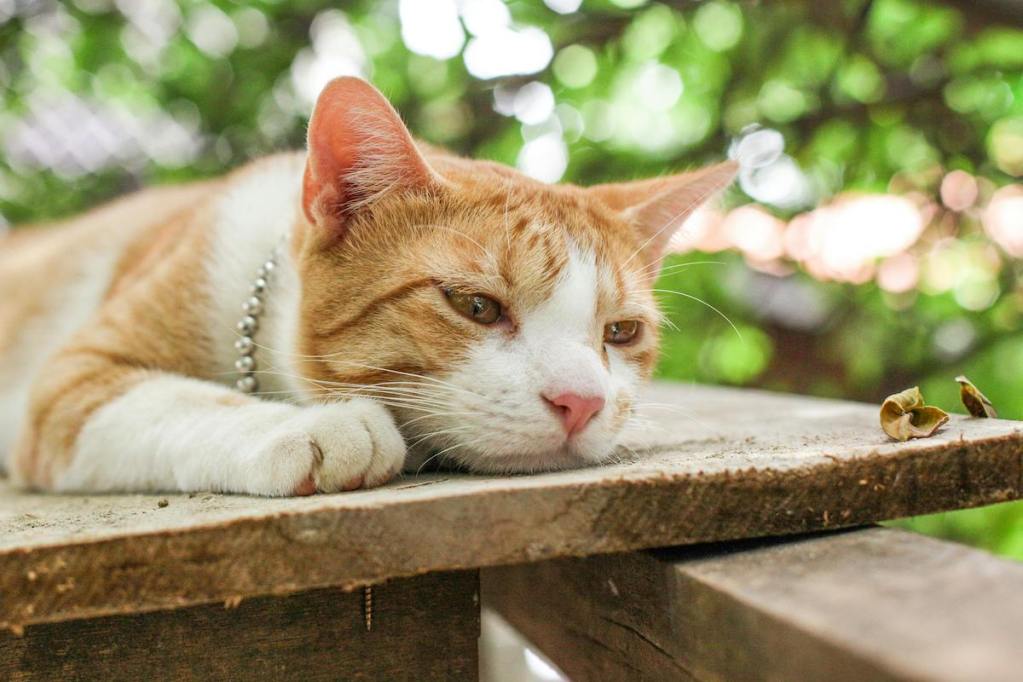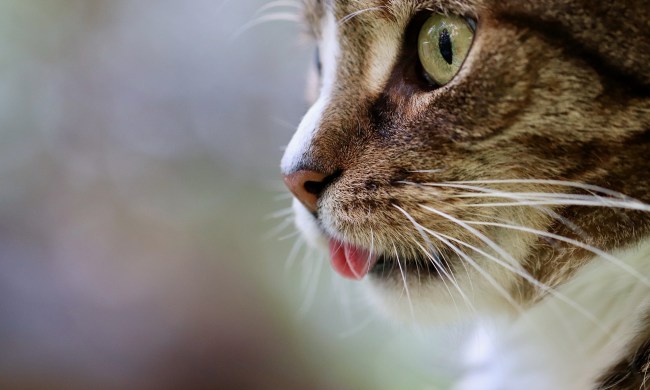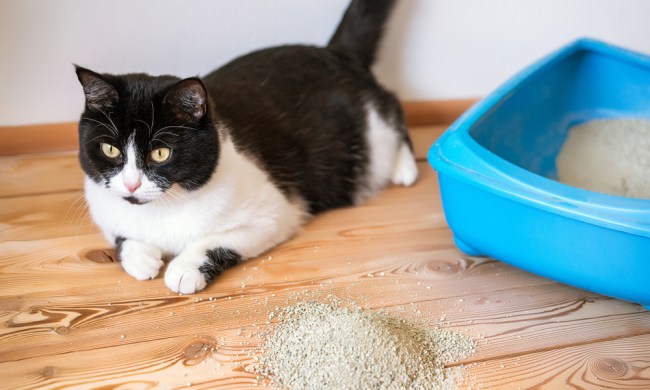Sometimes you come home from a long day at work and find your cat eagerly waiting for you, an adorable and delighted look on their face. Other times, you find cat poop. It’s certainly one of the most unpleasant parts of being a pet parent. Luckily, our kitties don’t go on the floor for no reason, and once you dig into it, you can find some solutions to your animal’s bathroom problems. So why is my cat pooping on the floor and not in the litter box? It could have a few causes. We’ll go over each one so you can figure out why it’s happening in your home.
Why is my cat pooping on the floor?

Sadly, a lot of cats do get put up for adoption because of these issues, so you need to nip it in the bud. As we covered, there could be a couple of reasons behind your cat’s sudden regression. By and large, it will fit into one of three categories: behavioral, medical, or environmental. Of course, there could be more than one problem at play, but narrowing down the main culprit will give you a chance to dive into the issue and discover the underlying cause (or causes) promptly — before all of your rugs get ruined, hopefully!
Behavioral issues

You might see a bit of overlap between these problems, but we want to separate them out as much as we can so you can sleuth your way to the culprit. Changes to your feline’s routine can cause anxiety and lead to new issues, like “going” anywhere that’s not where they’re supposed to.
Routine
When you decide to go back into the office for a few days per week, expect your cat to have something to say about it. A sudden change in routine can spark behavior problems in your beastie. Give them extra attention when you can and provide a few stimulating toys in your absence.
A new pet
Of course, you want a new kitten to complete your family, but your existing mouser might feel differently. Some kitties don’t want to share their litter box and will throw a fit by refusing to use it. Introduce the new furry addition slowly and carefully. Consider two litter boxes if that works with your setup and your pet’s preferences.
Renovations
Even something as simple as moving around the furniture can trigger your cat. Don’t let that prevent you from redoing the living room now and then, though. To cut down on their protest, do only a few pieces at a time and try to keep your cat’s accouterment, like bed and scratching post, in the same place if at all possible.
Medical issues

The trickiest part of figuring out that your cat doesn’t feel well — they hide their symptoms. You’ll want to get on your vet’s calendar right away if you suspect something medical might be at the root of their new soiling.
Digestive
Just as we all get digestive problems sometimes, so do our cats. This might come along after a change in food or if your cat snuck something they weren’t supposed to (maybe they raided the dog bowl for instance). Longer-term tummy troubles require a trip to the vet as it could be something more serious, like inflammatory bowel disease.
Diabetes
Anything that causes frequent urination will impact your pet’s desire to use their box. This includes diabetes, but also kidney issues or even a urinary tract infection. The good news is that with modern medicine, a diabetic cat can live many years, assuming they receive excellent care.
Arthritis
As your beloved fur ball gets older and starts having achy joints, they might stop climbing in and out of the litter box easily. Their feet may particularly reject the feeling of stepping on litter. Try switching up the box to something that has a lip and will make getting in a lot easier.
Environmental issues

What, how, and when all matter to a cat that needs to do their business. You may want to tweak your litter box arrangement to make your pet comfortable.
Type
It can be tempting to switch to a self-cleaning litter box, but some cats will straight up refuse to use one. Many owners have to go through a few different kinds before finding the exact right model. Cats also have strong preferences for a certain litter, often the one they used as babies.
Location
You may choose a spare bathroom or utility room, but it needs to be a quiet, low-traffic area. Since cats can be hunted in the wild, they want to see in all directions while they get the job done. Many cats prefer the potty to go in a corner, but it needs to be very accessible to them and you for cleaning (our next topic).
Cleanliness
Every pet parent knows this one, so we won’t belabor the point. Your cat hates a dirty bathroom (we suspect you do as well). While you may have success with a self-cleaning litter box, willful cats could refuse this accommodation. Ensure that you put regular cleaning on the schedule, regardless.
Sudden accidents often stem from an increase in stress, whether physical or environmental. If your cat starts to poop outside the box after a big life change, like a move or a baby, you’ll know immediately what’s going on. When the answer’s less obvious, a quick trip to the vet might clear it right up. Hopefully, you’ll go back to a potty-trained kitty in no time.




